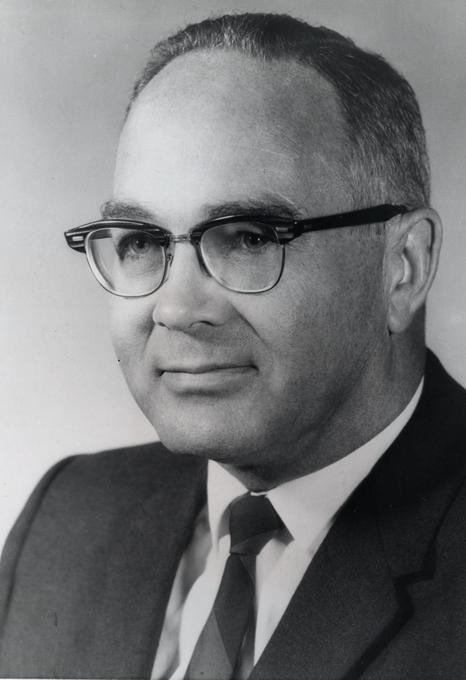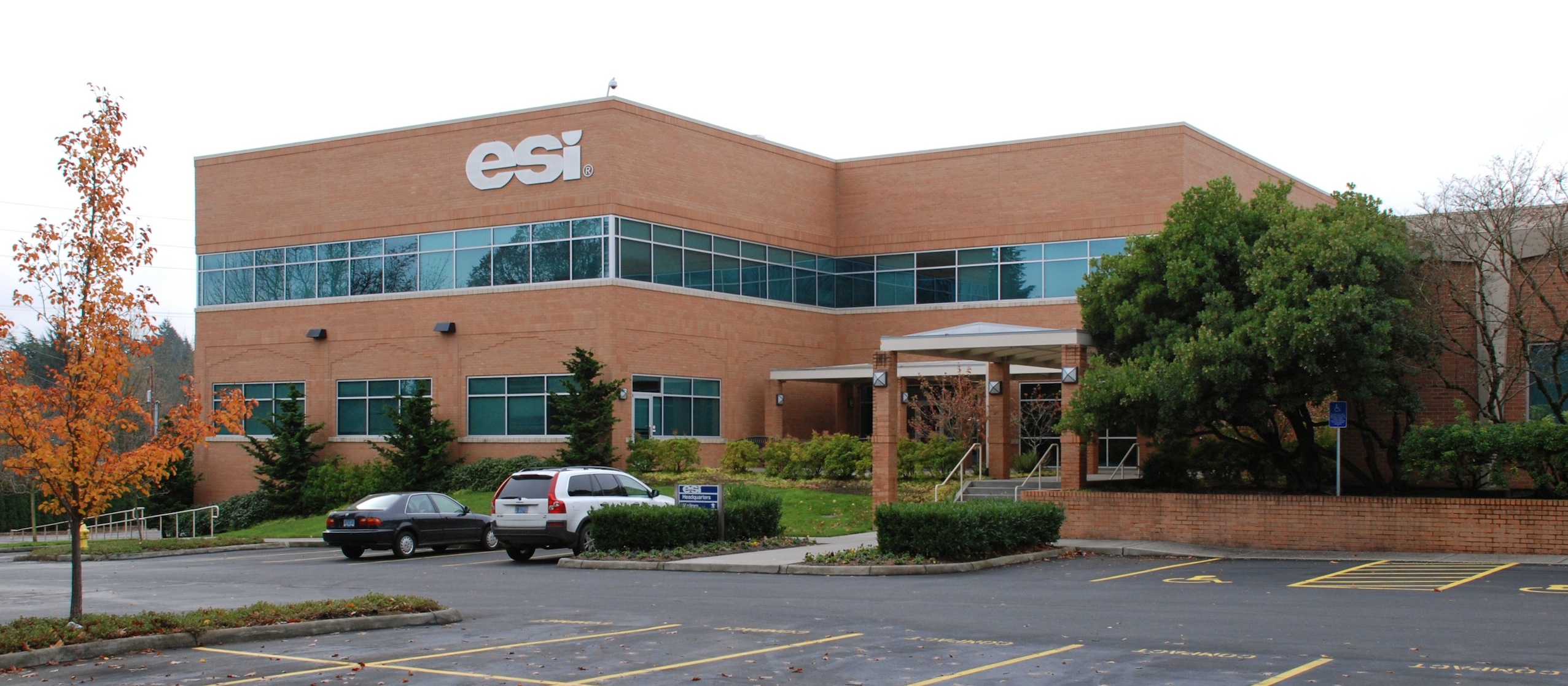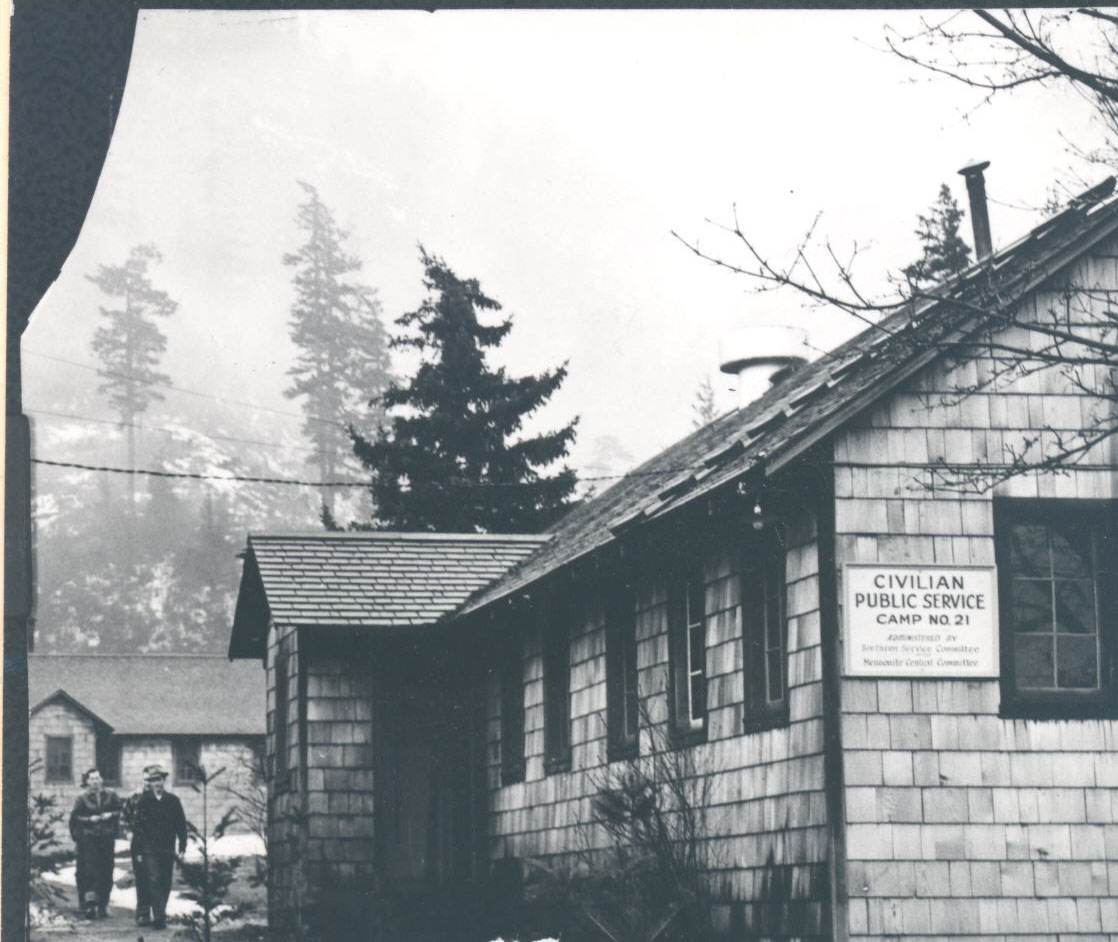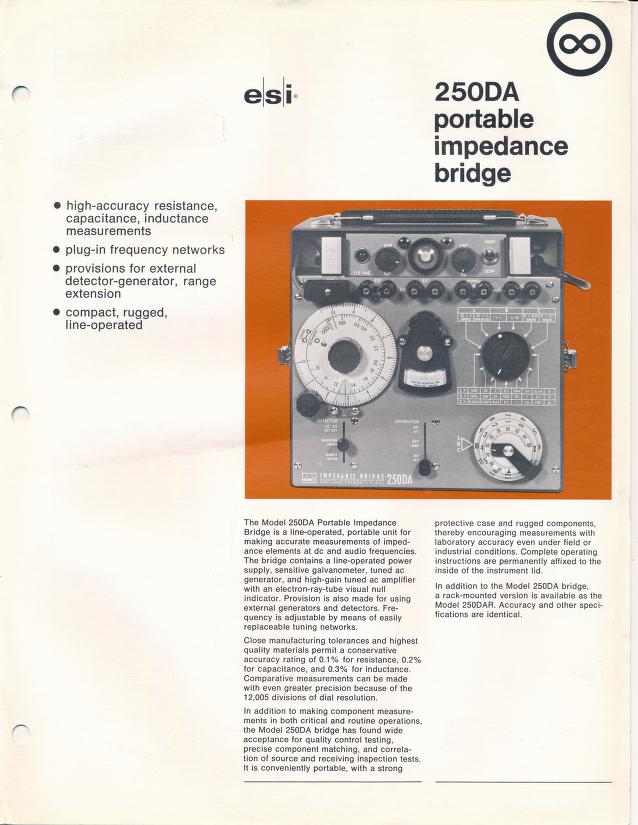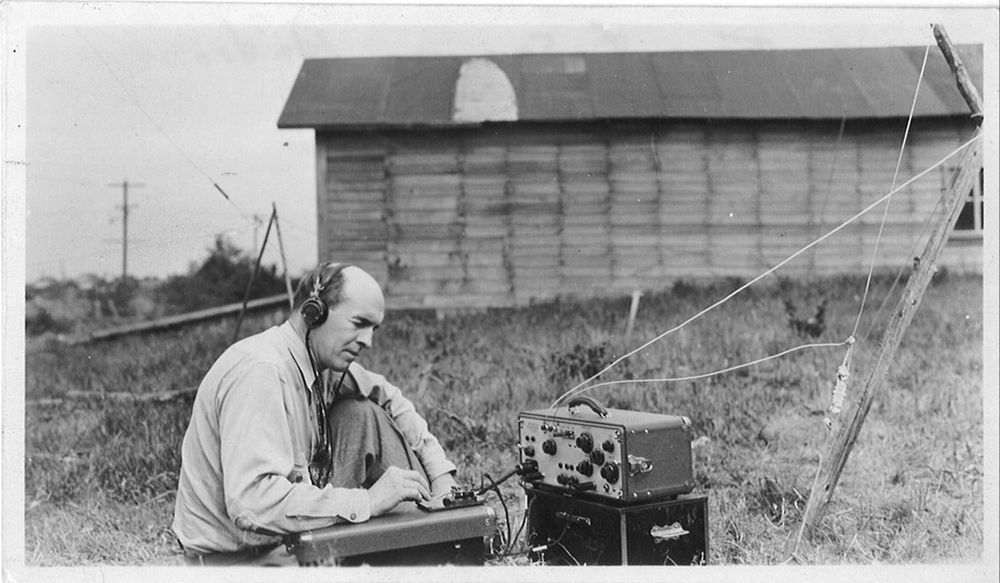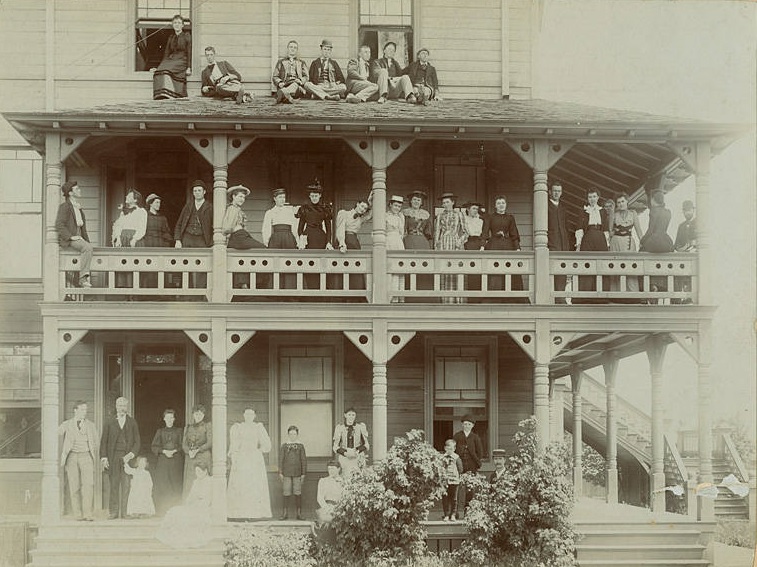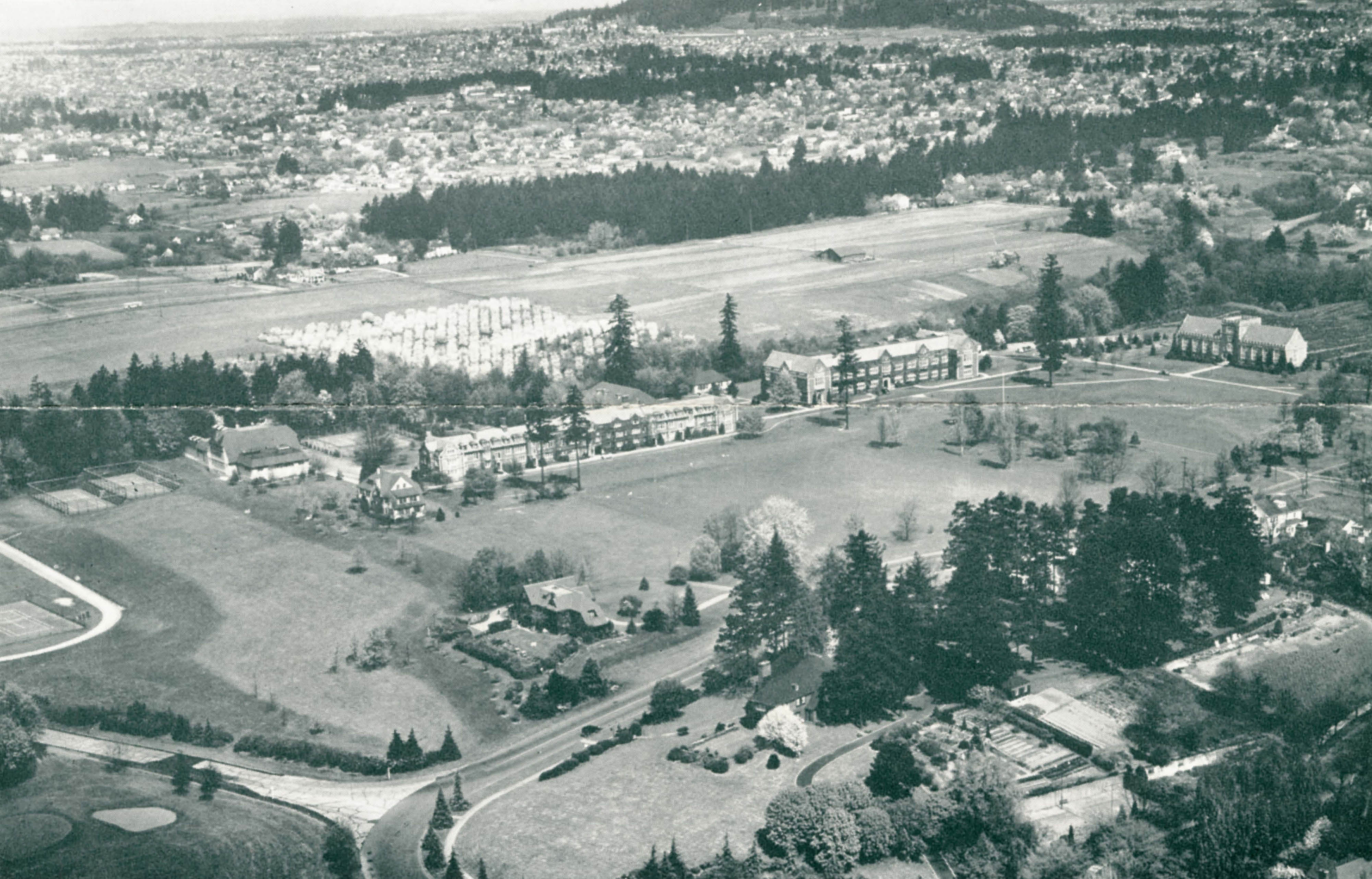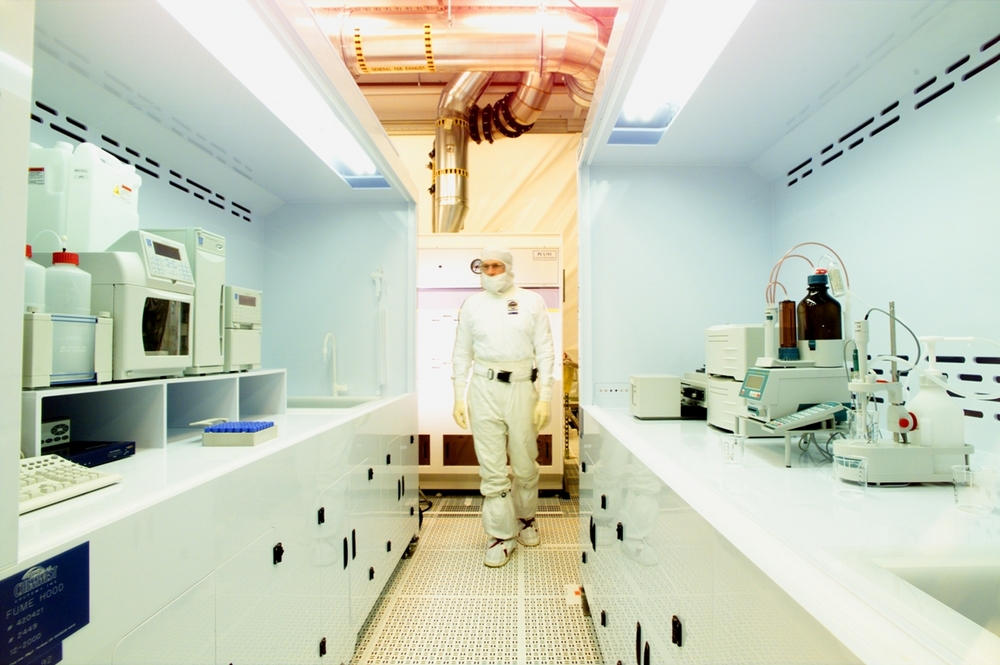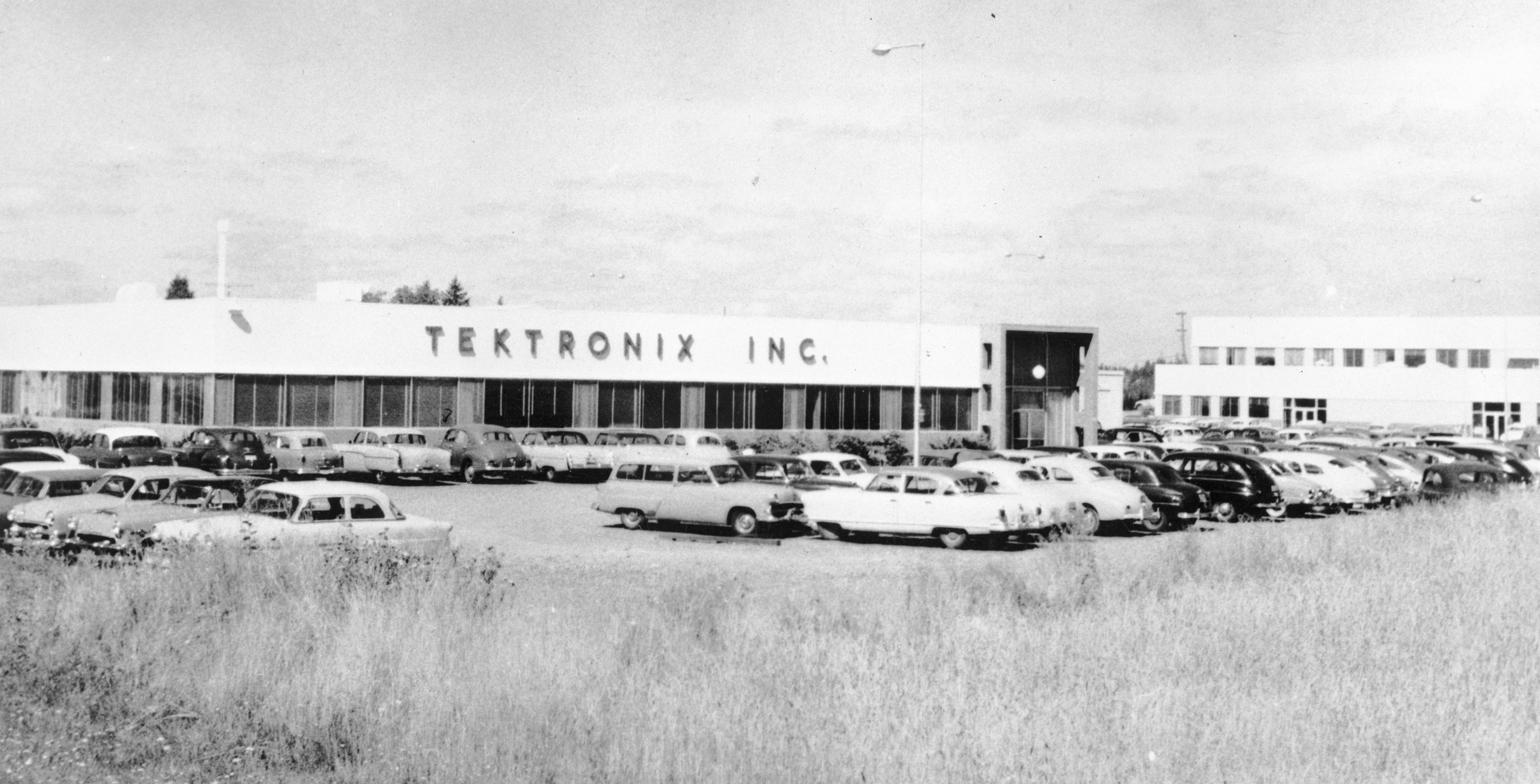Doug Strain was president and CEO of Electro Scientific Industries (ESI), one of the first two companies in the Silicon Forest, west of Portland. Strain was a talented electrical engineer who was largely responsible for developing ESI’s precision impedance measuring instruments, which measure the electrical resistance of complex circuits and are used in development and calibration. In addition to his business and technical endeavors, Strain served in many local and national organizations, boards, and agencies. He was a generous philanthropist, particularly to Pacific University.
Douglas Campbell Strain was born in Spokane, Washington, on October 24, 1919. His parents, Clayton and Edith, managed a farm in northern Idaho. Clayton Strain moved his family in 1932 to Alhambra, California, where he worked at the headquarters of the Challenge Dairy Cooperative, which had been formed to bring together local cooperatives in the West to compete with large food-processing companies. Doug attended Alhambra High School, where he developed an interest in radio and held several part-time jobs repairing and assembling radios. After graduation, he won a Bausch & Lomb Honorary Science Award for designing a flow pH meter to measure the acidity of chemical solutions. He attended Pasadena Junior College and was admitted to the California Institute of Technology in 1941. He married Leila “Cleo” Karicofe on June 10, 1943, a marriage that lasted until his death. They had three children.
Strain was raised in the Disciples of Christ but gravitated toward the Society of Friends (Quakers) in college. When he registered for the World War II draft, he was granted status as a conscientious objector and was drafted after one semester at Cal Tech. He began his alternative service at Civilian Public Service Camp (CPS) #21 at Cascade Locks on January 15, 1942. Strain served in several other CPS camps before returning to Cascade Locks in 1944, when he was assigned to work in the Forest Service Radio Lab in Portland. While there, he moonlighted at Brown Electric, a small company founded by Frank Brown that manufactured impedance bridges for General Radio (now GenRad) in Concord, Massachusetts.
Returning to Cal Tech after the war, Strain completed a degree in electrical engineering in 1948. He worked at Beckman Instruments for a year and then moved to Portland and purchased a quarter share in Brown’s company, which was incorporated under a new name, Brown Electro-Measurements. Together, Strain and Brown designed a high precision impedance bridge, the BECO 250, which was highly accurate, portable, and competitively priced.
In 1953, Strain and his father purchased the company and renamed it Electro-Measurements; they changed the name to Electro Scientific Industries in 1959. ESI was primarily a precision instrument company until 1969, when it began to build laser manufacturing systems for the semiconductor industry. Laser manufacturing systems are used to fabricate and repair the tiny electronic components used in computers, cell phones. and other such devices. The company became, and still is, a world leader in the production of such systems. Strain resigned as president in 1980 but continued as chair of the board until 1985. He served as vice-chair until he retired in 1999.
Doug Strain was a member of many professional organizations and held leadership positions in several. He served as chair of the Instrument Society of America and was a founding director of the American Electronic Association and was on the Oregon Commission on Futures Research and the Oregon Governor’s Advisory Council. He was a member of the board of trustees of several educational institutions, including Pacific University, where he was board chair. One of the buildings on the Pacific University campus is the Douglas C. Strain Science Center, built in 1963. He and his wife Cleo were the largest individual donors to the building project. He also donated an endowment to Pacific University to establish the Douglas C. Strain Chair of Natural Philosophy.
Strain received a Career Excellence Award from the Institute of Electrical and Electronics Engineers Instrumentation and Test Calibration Society in 2003 and the Wildhack Award of Achievement in Precision Electrical Measurements from the National Conference of Standards Laboratories in 1977. In Oregon, he received the Harvey Clark Award from Pacific University and was the first winner of the Vollum Award for Achievement in Science and Technology from Reed College in 1975.
In 1959, Strain sold the former ESI building at 4312 Southeast Stark, which had earlier been a Portland Knitting Mill (Jantzen) facility, to the Multnomah Monthly Meeting of the Society of Friends for one dollar under the condition that the American Friends Service Committee could have offices in that building as long as it wanted. Although the AFSC has since moved to another location, the Multnomah Monthly Meeting continues to meet there.
Doug Strain died in Portland on November 15, 2008.
-
![]()
Douglas Strain.
Courtesy Oregon State University Libraries -
![]()
ESI headquarters, Cedar Mill.
Courtesy Steve Morgan
Related Entries
-
![Civilian Public Service Camp #21]()
Civilian Public Service Camp #21
Civilian Public Service Camp #21 opened in November 1941 at Wyeth, a fe…
-
![Electro Scientific Industries]()
Electro Scientific Industries
Electro Scientific Industries (ESI) was one of the first two electronic…
-
Forest Service Radio Lab
The Forest Service Radio Laboratory (FSRL)—located in Portland from 193…
-
![Pacific University]()
Pacific University
Pacific University, one of the oldest universities in the American West…
-
![Reed College]()
Reed College
Situated on 116 acres in southeast Portland, Reed College enrolls nearl…
-
Silicon Forest
The Silicon Forest is the name applied to the cluster of high-technolog…
-
![Tektronix Inc]()
Tektronix Inc
Tektronix, one of Oregon's most prominent and innovative high-technolog…
Related Historical Records
Map This on the Oregon History WayFinder
The Oregon History Wayfinder is an interactive map that identifies significant places, people, and events in Oregon history.
Further Reading
Marshall M. Lee, A Passion for Quality: The First Fifty-Five Years of Electro Scientific Industries 1944-1999, Portland, OR: Electro Scientific Industries, 1999.
“Strain, Douglas 'Doug' C. 1919-2008,” The Oregonian, November 19, 2008, https://obits.oregonlive.com/obituaries/oregon/obituary.aspx?n=douglas-c-strain-doug&pid=120375169 (accessed, December 17, 2020)
“Electro Scientific Industries,” in Gordon B. Dobbs, Craig E. Wollner and Marshall M. Lee, The Silicon Forest, High Tech in the Portland Area 1945 to 1986, Portland, OR: Oregon Historical Society Press, 1990
Kirby Urner, “Sticking Out Like Sore Thumbs,” Western Friend, https://westernfriend.org/article/sticking-out-sore-thumbs (accessed October 1, 2021)



